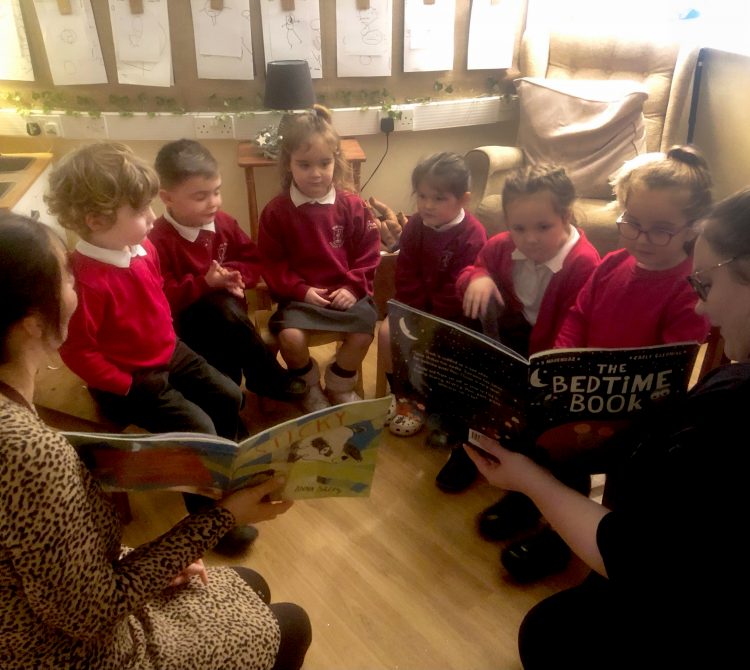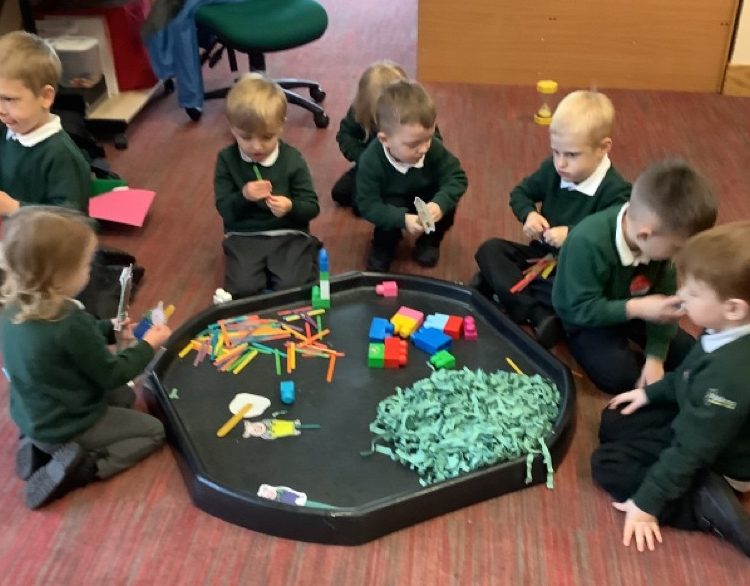Project in Teesside schools improves nursery pupils’ speech, language and communication skills

A SHINE project on Teesside has improved the speech, language and communication skills of nursery pupils.
And teachers say they hope the programme can continue to run “indefinitely”, following the success of the two-year pilot, which received funding of more than £52,000 from SHINE.
The project took place at the seven primary schools that make up the Ad Astra Academy Trust. Many of the children attending the schools, in Hartlepool, Middlesbrough and Stockton, are from areas of high deprivation and already lower-than-average communication skills had been made worse by Covid.
Pete Wiley, Ad Astra Trust School Improvement Lead, said: “Among our seven schools, we observed that two-thirds of pupils enter reception with below-typical language and communication skills.
“The Covid-19 pandemic has undoubtedly exacerbated this problem, leading to a surge in referrals to speech and language services, which are already overwhelmed.”
The trust devised a wide-ranging project, encompassing various strategies designed to enhance children’s communication and language abilities.
These included improving the quality of nursery environments, equipping staff with the necessary skills to foster high-quality interactions with children, and actively engaging parents in the process.
Pete said: “Extensive evidence demonstrates that early identification and appropriate support for children with delayed speech, language and communication skills lead to significant progress.
“For pre-school children with delayed language development, this support can help them catch up with their peers.”
Each school within the trust adapted slightly different approaches, depending on their contexts.

For instance, at Brougham Primary School, the second most deprived school in Hartlepool, pupils generally enter school with low starting points in all areas of the early years curriculum with particularly low scores in the key areas.
Here the project included:
- Training for early years staff, building expertise in delivering high-quality interactions unique to each child.
- Development of a communication-friendly setting that promotes conversation and interaction.
- Introduction of activities and interventions to promote and develop communication and language.
- Empower and enable parents to develop their own children’s communication and language through parent workshops such as ‘stay and play’, creating handouts for parents to refer to later.
- Further development of listening and attention in a child-friendly fun and attention-grabbing way.
Since the project began, schools across the trust have witnessed significant improvements in how well children communicate.
For example, at West View Primary School in Hartlepool, 51.1% of children are classed as “ready for reception” this year when it comes to listening and attention – an improvement of 10 percentage points (40.8%) on the previous year.
Meanwhile, with regard to speaking, 46.6% are deemed “ready for reception” – an improvement of 8 percentage points (38.6%) compared to last year.
Being exposed to quality language enables our young people to develop their ability to speak clearly, process speech sounds, understand others, express ideas and opinions and interact with others. These skills are fundamental building blocks within a child’s development, and it is imperative to embed this early in a child’s education.
Laura Wears, SHINE Champion at West View, said: “I feel this project could run indefinitely. Language-rich environments, with highly skilled staff, are the key to developing young people’s speech, language and communication skills.
“Our school is in a high area of deprivation and children usually arrive in our setting working below age-related expectations. Being exposed to quality language enables our young people to develop their ability to speak clearly, process speech sounds, understand others, express ideas and opinions and interact with others. These skills are fundamental building blocks within a child’s development, and it is imperative to embed this early in a child’s education.”
Fiona Nicholson, Deputy Headteacher at Rosebrook Primary School in Stockton-on-Tees, said: “It is so important that our youngest children get off to the best possible start at school and the SHINE project has helped us to focus on the children who need additional support to bring their speech and language skills to the required level.
“It has been a really positive project with a marked improvement of communication skills among 3 and 4-year-olds, which is vital to their future learning.”
The seven schools involved in the project have compiled a Communication and Language Best Practice Guide, which aims to support staff across Ad Astra schools and beyond in continuing to develop and incorporate the lessons learnt during the project.
Pete said: “Our intention is to continue developing our communication and language best practices by revisiting the guide we have created as a trust and enhancing our current nursery offer with additional parental support.
“The project has reaffirmed the importance of staff CPD and making sure that the whole team is on the same page with the same focus.
“Staff knowledge and understanding of how to support communication and language has grown, pupils are generally making better progress than prior to the communication and language focus and parental engagement has improved.
“We have adapted our way of working to ensure we are modelling language, teaching new vocabulary and asking questions in all areas of the classroom.
“We feel quality first teaching and language-rich environments will benefit all children, but particularly disadvantaged pupils, and have a greater impact on pupil outcomes than a traditional intervention.”
